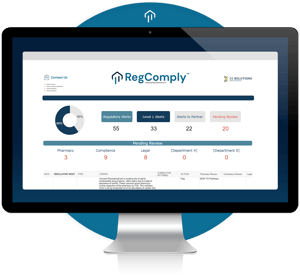Connecticut House Bill 5249 | Opioid Drug Deactivation and Disposal Systems
Connecticut House Bill 5249 was introduced last month (February 2024) with a focus on enhancing opioid safety. Connecticut currently offers a variety of public programs for education on and the disposal of opioids, but until this point, they have lacked both mandatory provision and opportunities for reimbursement. In a continued effort to support public health, prevent unsafe opioid usage, and avoid accidental exposure, CT HB5249 addresses both of these issues.
If enacted, the bill would result in two key changes:
- Pharmacies and pharmacists in the state of Connecticut would be required to provide personal opioid drug deactivation and disposal systems to patients.
- A portion of funds from the Opioid Settlement Fund would be reallocated towards reimbursing pharmacies and pharmacists for these personal dispensing systems.
The Impact on Connecticut Pharmacies
Per the first objective of the bill, pharmacies and pharmacists would be required by law to provide safe, personal disposal options for unused opioids whenever they are prescribed. These disposal systems would enable patients to expose the medications permanently and completely at no additional cost to the patient.
To protect pharmacies from inheriting this fee, Connecticut HB5249 also includes amendments to current legislation regarding the allocation of Opioid Settlement funds. Pharmacies will be able to seek reimbursement from the Opioid Settlement Advisory Committee for these systems but will be required to appropriately document the distribution of the disposal systems to request reimbursement.
This legislation is an effort to continue addressing the opioid crisis and protect the public from both misuse and accidental exposure.
If passed, the bill will take effect on October 1, 2024.
Only the right alerts, to the right people, every time.

Regulatory changes and industry growth are important, but staying ahead of the changes can be difficult. This is why we've developed RegComply™, the cutting-edge alert management platform that ensures the right alerts reach the right people, every time.
Whether you’re a healthcare organization, manufacturer, or pharmacy, it is possible to stay on top of regulatory changes, not buried beneath them. Boost compliance, streamline regulatory processes, and enhance patient care with RegComply!




